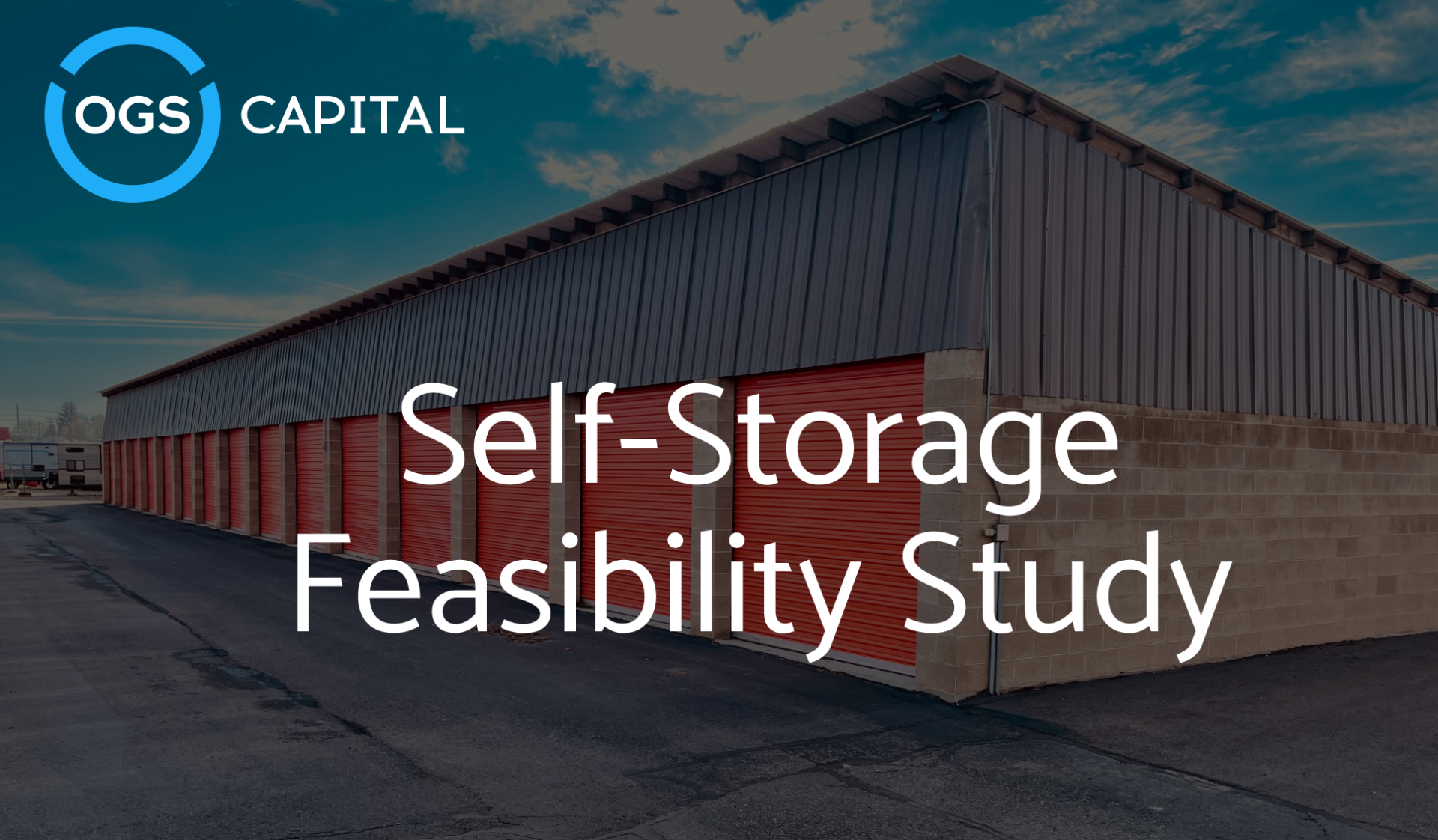Table of Content
Are you aware that the self-storage sector raked in a staggering $39 billion in revenue in 2022, surpassing Hollywood’s $26 billion earnings? Despite the abundance of storage facilities, there is still unexplored potential for growth. The key lies in crafting a well-thought-out self storage business plan and comprehensive self-storage feasibility study. These documents offer crucial insights into the feasibility of investing in this market. In this article, we shall delve into the feasibility of self-storage facilities and determine if they still offer a viable investment opportunity.
What is a feasibility study?
A study represents a method of evaluating the potential of a proposed commercial idea. Essentially, it serves to determine whether a business will be sustainable in the long run.
Conducting a study carries immense weight. It provides a means of evaluating the viability of your concept and whether it merits the allocation of your valuable time, effort, and resources. This study provides an in-depth analysis of numerous factors that may impact your business, including market demand, competition, financial projections, potential risks, and other related aspects.
By conducting a comprehensive feasibility analysis, potential issues can be identified and addressed proactively, minimizing the risk of investing significant capital into the venture. This process also enhances understanding of the target market and consumer needs, giving the opportunity to establish a competitive edge over other self-storage businesses in the locality.
Elements of a storage feasibility study
A study serves to assess the worthiness and feasibility of a storage project by identifying potential benefits, costs, and risks. It is essential to incorporate the following key elements in a study:
1. Market Analysis
One of the essential components of a study is a market analysis. A market analysis evaluates the demand for self-storage in the targeted market, the current supply of self-storage in the market, and an analysis of the competition. The study should also factor in demographic and economic variables that may impact the self-storage facility’s success, such as population growth, employment trends, and income levels.
2. Site Selection
Opting for the right location for a self-storage facility is crucial. This process involves a painstaking examination of potential sites and their feasibility. A myriad of factors must be considered, including but not restricted to zoning regulations, the facility’s accessibility to principal thoroughfares, the proximity to residential and commercial areas, and the availability of vital utilities.
3. Financial Projections
The financial projections offer a glimpse into the potential profitability of the undertaking. It is essential to include a comprehensive breakdown of the capital costs necessary for self storage construction, as well as the continuous operating expenses and the anticipated revenue. It is of utmost importance that the projections are grounded on realistic assumptions regarding the occupancy rates, rental fees, and other factors that could significantly affect the triumph of the self-storage facility.
4. Risk Assessment
Undertaking a risk assessment provides a detailed analysis of potential risks and uncertainties that could impact the accomplishment of the self-storage facility. These risks could encompass unforeseen alterations in the market, stiff competition from existing or emerging self-storage facilities, or regulatory modifications that could negatively affect the facility’s operations. Identifying and addressing these potential risks is critical for the success of the self-storage facility.
| Sr. No. | Element | Importance | Items Covered |
| 1 | Market Analysis | Assesses the demand, competition and economic factors that can impact the success of the project | ● Market demand ● Current supply ● Competition ● Demographics ● Economic factors |
| 2 | Site Selection | Determines the suitability of potential sites based on zoning regulations, accessibility, proximity to residential and commercial areas, and utilities | ● Zoning regulations ● Accessibility ● Proximity to residential and commercial areas ● Availability of utilities |
| 3 | Financial Projections | Provides insight into the potential profitability of the project based on realistic assumptions | ● Capital costs ● Ongoing operating expenses ● Projected revenue ● Assumptions about occupancy rates and rental rates |
| 4 | Risk Assessment | Identifies potential risks and uncertainties that could impact the success of the self-storage facility | ● Unexpected changes in the market ● Competition ● Regulatory changes ● Other potential risks and uncertainties |
Why is a feasibility study required?
Let’s understand this with the help of a case study:
Extra Space Storage had made plans to establish a new self-storage center in Carpentersville, Illinois, in 2018. Nevertheless, prior to moving forward with the project, the organization opted to conduct a feasibility assessment in order to determine the potential market’s ability to support another self-storage facility in the region.

As a result of the study’s findings, Extra Space Storage was given the green light to pursue the project since the market could sustain another self-storage facility. Subsequently, the center has flourished and has aided in fulfilling the area’s demand for self-storage units.
This particular case study emphasizes the significance of conducting a study prior to commencing the development of a self-storage facility. If Extra Space Storage had not carried out this research, the organization might have invested a substantial amount of money into a venture that did not have economic feasibility. However, by conducting this analysis, the organization could make an informed decision and ensure the success of the project.
A feasibility investigation for self-storage is of utmost importance for property developers who intend to construct a storage facility. It serves various purposes, such as:
- Ascertaining the demand: A self-storage demand study can assist in identifying whether the area has adequate demand for a self-storage facility based on several criteria, such as populace density, demographics, and competition.
- Spotting potential customers: The study can identify potential customers, such as small business owners or individuals in transition, who may require storage space.
- Assessing financial viability: The study helps assess the financial viability of the project by approximating costs linked with construction, operation, and marketing.
- Examining location alternatives: The study examines the suitability of the selected location for the self-storage facility, taking into account factors such as zoning regulations, accessibility, and visibility.
- Providing marketing insights: The study provides insights into the most effective marketing strategies to reach potential customers and achieve high occupancy rates.
- Mitigating risks: The property developer can mitigate the risks associated with the project, such as investing in a location where there is insufficient demand or competition is too high, by conducting a study.
Peculiarities of self storage feasibility studies in different regions
Feasibility studies for storage facilities can vary depending on the region where they are conducted. Here are some possible peculiarities to consider for the following regions:
- Florida: Due to the high population growth and transient nature of the state, self storage facilities are in high demand, particularly in coastal areas with high tourism. Feasibility studies in Florida may need to account for hurricane risks and zoning regulations that vary between municipalities.
- Texas: Texas has a large population and a growing economy, which creates a demand for self storage facilities in urban and suburban areas. Feasibility studies in Texas may need to consider the proximity of the proposed site to major highways, population density, and competition from existing facilities.
- Illinois: Self storage facilities in Illinois are subject to property taxes, which can affect the feasibility of a project. Feasibility studies in Illinois may also need to account for seasonal variations in demand and local economic conditions.
- Georgia: Like Florida, Georgia has a high population growth and a transient population, which creates demand for self storage facilities in urban and suburban areas. Feasibility studies in Georgia may need to consider the proximity of the proposed site to major highways, population density, and competition from existing facilities.
- Indiana: Indiana has a diverse economy and population, which can affect the demand for self storage facilities. Feasibility studies in Indiana may need to consider the location of the proposed site, competition from existing facilities, and local economic conditions.
- Utah: Utah has a relatively low population density, which can affect the demand for self storage facilities. Feasibility studies in Utah may need to consider the location of the proposed site, competition from existing facilities, and the potential for growth in the local population and economy.
- Los Angeles: The high population density and land costs in Los Angeles can make it difficult to find suitable sites for self storage facilities. Feasibility studies in Los Angeles may need to consider the potential for zoning changes, competition from existing facilities, and the demand for storage space in different neighborhoods.
- Wisconsin: Self storage facilities in Wisconsin are subject to property taxes and zoning regulations, which can affect the feasibility of a project. Feasibility studies in Wisconsin may need to consider the location of the proposed site, competition from existing facilities, and the potential for seasonal variations in demand.
Expert Self Storage Feasibility Studies and Business Planning Services by OGSCapital
Conducting a self storage market study is a complex and time-consuming process. That’s where OGSCapital comes in. As a team of professionals with expertise in business planning and related documentation services, at OGSCapital, we assist you with every step of the process, from conducting market research to creating a comprehensive business plan.
Here are just a few ways that OGSCapital can help with your study:
- Conducting market research: Market research is a fundamental aspect of a feasibility study, and we acknowledge its significance. That’s why we have at our disposal access to industry-specific databases, which allows us to carry out exhaustive market research to establish the viability of a self storage facility in your intended locale. Furthermore, we can assist you in scrutinizing potential competitors and identifying their competencies and inadequacies.
- Analyzing financial projections: Financial projections are a crucial element of a study. Our expert team has the capacity to generate comprehensive financial projects that encompass elements like tenancy percentages, rental charges, and operating costs. These assessments can help you determine the monetary feasibility of your project and forecast your potential earnings on investment.
- Developing a comprehensive business plan: A well-written business plan is also crucial for securing financing and outlining your project’s goals and strategies. Our team can help you create a customized self storage business plan that is tailored to your specific needs and goals.
Here are a few OGSCapital business plan samples that you can check:
- Document Storage Business Plan
- Subscription Box Business Plan Sample
- Self Storage Business Plan Sample
- Drop Shipping Business Plan Sample
Providing related documentation services: In addition to business planning, we can also offer a range of related documentation services, such as pitch deck creation, due diligence services, and ICO consulting. We can also provide you with all the necessary documentation you need to secure financing and launch your self storage facility.
So why should you consider OGSCapital for your feasibility study needs?
Note
There are numerous companies that offer self-storage feasibility studies, but our team stands out with our decade-long experience and highly skilled professionals. With our extensive expertise and ample resources, we can help you attain your objectives. Our focus on client satisfaction and personalized service ensures that you’ll receive the attention and support you need to succeed.
If you are interested in learning more about how we can help with your self-storage feasibility study pdf, please don’t hesitate to contact us. Our team of experts is ready to assist you in every step of the way towards the success of your business.
FAQ
1. How do you evaluate self-storage?
Self-storage can be evaluated based on factors such as location, cost factor, security measures, unit sizes, amenities offered, rental rates, and customer reviews.
2. What is a feasibility checklist?
A feasibility checklist is a tool used to determine whether a project or idea is feasible, meaning it is possible and practical to implement. It typically includes a list of criteria or questions to evaluate various aspects of the project, such as financial viability, self-storage business models available, technical feasibility, and resource availability.
Get in touch with us today at OGSCapital to schedule a consultation and take the first step towards your study. We look forward to hearing from you!
OGSCapital’s team has assisted thousands of entrepreneurs with top-rate document, consultancy and analysis. They’ve helped thousands of SME owners secure more than $1.5 billion in funding, and they can do the same for you.













